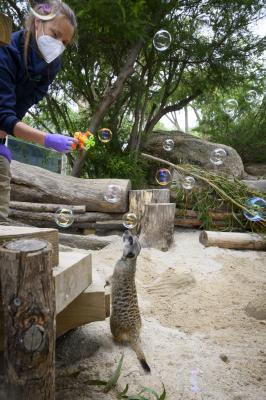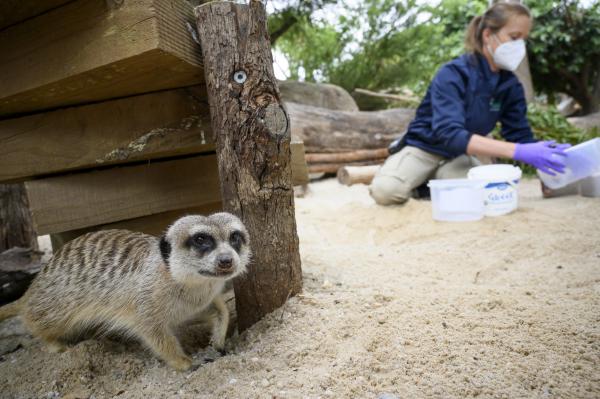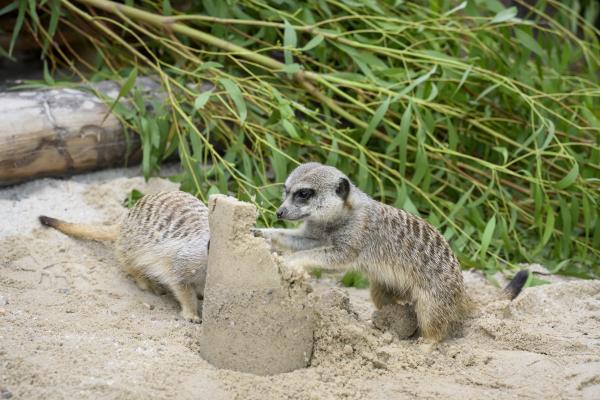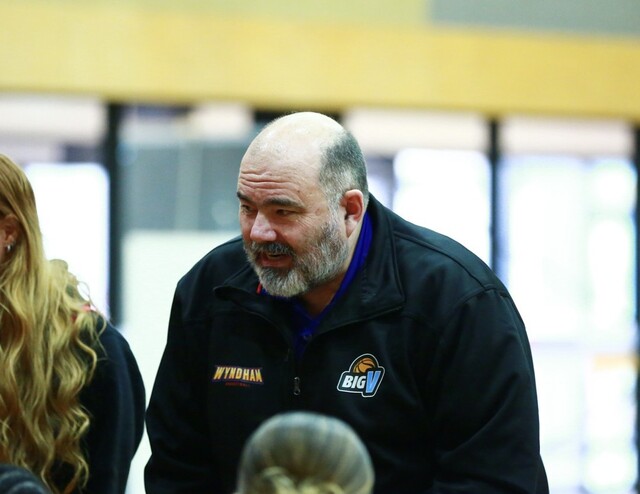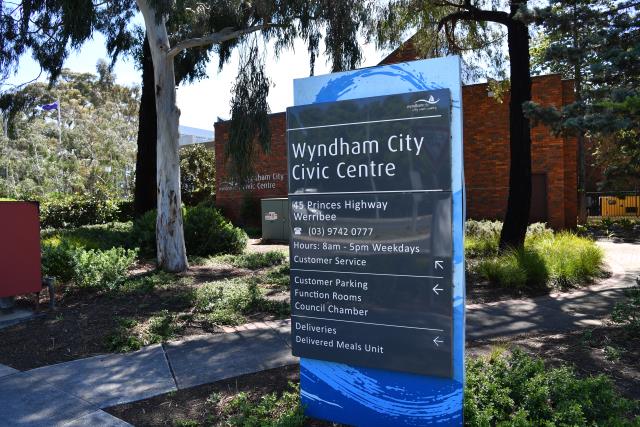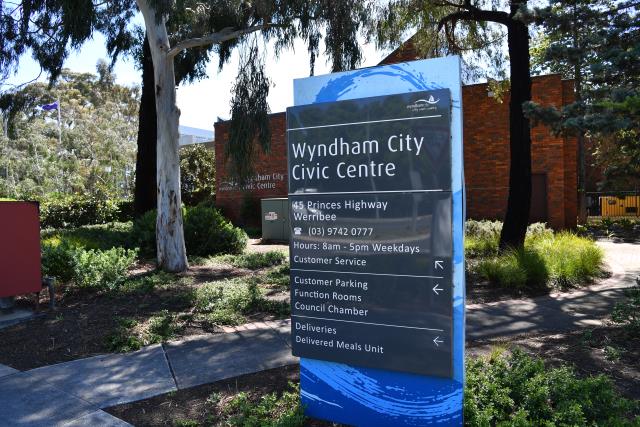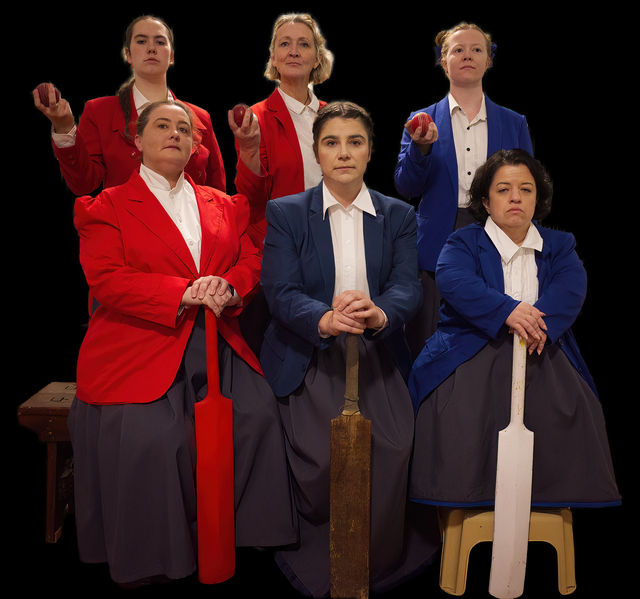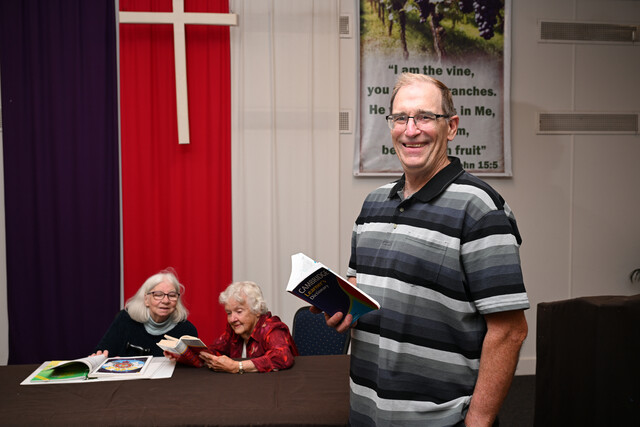Sub-head: Werribee Open Range Zoo’s meerkat mob educate visitors by bursting bubbles
Bubbles and sandcastles have seen Werribee Open range Zoo’s slender-tailed meerkat mob joining in the celebrations of a significant milestone.
More than 200,000 people have now pledged their commitment to switch to blowing bubbles instead of using balloons at outdoor celebrations, as part of the When Balloons Fly, Seabirds Die community conservation campaign aimed at protecting precious marine wildlife.
The milestone was marked with special enrichment activities for Werribee Zoo’s meerkats who inquisitively explored and popped bubbles and playfully burrowed through sandcastles.
When used outdoors, balloons and their attachments can find their way into oceans and waterways, potentially harming wildlife. A 2019 study by CSIRO attributed balloons as being the deadliest marine debris item to seabirds. Animals can mistake balloons for food floating on the water’s surface and can ingest them or even feed them to their young.
Werribee Zoo keeper Tamsyn Green said the bubble enrichment for the zoo’s animals has a dual purpose: to educate visitors about wildlife-friendly alternatives to balloons, while helping to mentally and physically enrich the inquisitive mammals.
“The sandcastles and bubbles introduce unfamiliar structures and sensory elements to the meerkats’ habitat,” said Ms Green. “This encourages their natural wild behaviours and provides important mental and physical stimulation.”
“The meerkat mob demonstrate their foraging and burrowing behaviours while exploring the sandcastles, and stretch up in their sentry posture to engage with the bubbles as they pass.”
The bubbles and sandcastles are just two examples of how Werribee Open Range Zoo keepers continually invent ways to motivate and engage the animals in their care through a rotating roster of daily enrichment activities.
Enrichments range from sensory, cognitive or physical, and often involve a high value food reward to encourage participation. They are always developed to stimulate a natural behaviour that the animal would demonstrate in the wild or to encourage their problem solving and critical thinking.
Zoos Victoria is calling on the public to spread the word and help the When Balloons Fly, Seabirds Die initiative reach a quarter of a million pledges.
It’s as easy as making outdoor events, such as school fetes, sports carnivals, markets and parties, balloon-free and wildlife–friendly, by switching to alternatives, such as bubbles, paper balloons, bunting, flags or banners, kites, candles, floating flowers, or planting a tree.
For more information about how to protect marine wildlife, and to make the pledge visit zoo.org.au/balloons.

